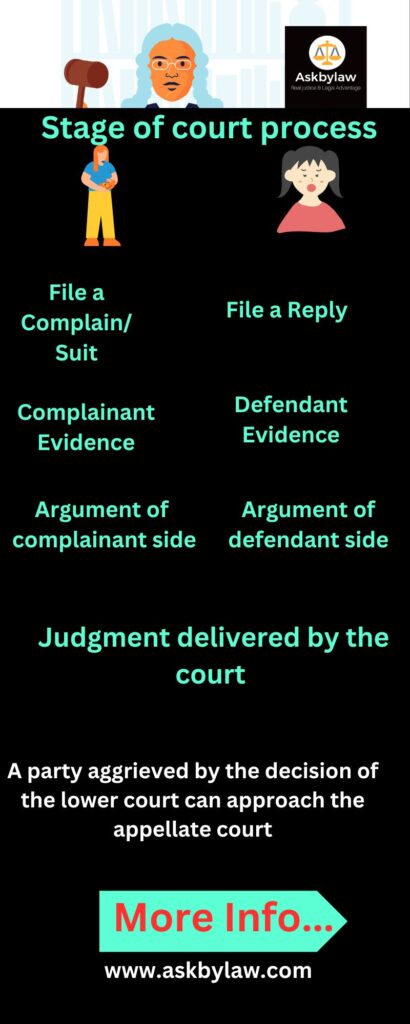Blog Article on: Adopt on now legally active attitude: Can you resist unlawful arrest
Hi folks,
“When you have a dream you’ve to get to grab it and never let go”
Are you listening to me! Right!
Introduction- Can you resist Unlawful arrest
My bad luck. Any basis of inconsistent and false evidence or suspicion of a person being arrested by the police or other government agency. As well as the arrested person and his family are then unable to understand why this is being done to me. And, when the police arrest a person on the basis of their misconduct and on the basis of inconsistent and irrelevant evidence and only suspicion. Meanwhile. And the people of the society also find the arrested person guilty. Whereas. The arrested person is not always guilty. As much as, he is sometimes suffers custodial torture and custodial death is also encountered by the illegal detainee due to the possibility of misunderstandings for false evidence against the detainee during the legal process and law enforcement.
What a great pity. When a person is arrested by the police for a crime on the basis of false evidence. If such a person is poor and ignorant of legal matters, his and his family's troubles are greatly increased. As well as the person himself and his family experience pain in body, mind, and money till the innocent release of the arrested person.
A person has to struggle a lot to get out of an illegal arrest based on false evidence. As well as. People in the community, friends, and relatives do not help the person who is arrested at such a time. To that end. The law and the lawyer come to the aid of the person who is arrested at such a bad time. Read more...
Let us then show you how to get out of an arrest made on the basis of false evidence and only on suspicion.
Are you interested to read: Can Cryptocurrency be legal in India in 2022?
Is detention legal or illegal? -Can you resist Unlawful arrest
Good thing. The concept of legal detention and illegal detention is very clear. And. As well as It can explain as follows:
By physically and mentally torturing anyone, violating their personal freedom, and trampling on their dignity as citizens, FIRs are filed. As much as. When a person is kept in lockup/jail for more than 24 hours without fulfilling the procedure prescribed by law, he stands by the side of such a citizen to protect the constitution of the country. To that end. The victim should be released from such illegal detention.
What is means by illegal detention? -Can you resist Unlawful arrest
You see.
- False imprisonment
- Falsifying a police report (Evidence)
- Witness tampering
- Police brutality
- Bribing and lobbying
- The non-warranted survey, search and seize of property
- Misconduct
What is an example of false imprisonment?
Good luck. Such was the case against Rudul Shah versus the state of Bihar. As well as. It is then ordered to pay as compensation. As well as, this is probably because the state of the country can successfully defend its sovereign immunity in a regular civil suit for damages for false imprisonment.
The worldwide ratio of illegal arrest
It is important to take a look at the status of the illegal detention ratio worldwide

What is illegal arrest in India?
The First landmark case of prisoner Mr. D.K.Basu versus the State of W.B. set standard grounds for arresting any person.
Given the growing incidence of violence and atrocities in custody, the landmark judgment of the Supreme Court of India (judgment of the State of West Bengal versus D.K. Basu) has outlined-11 specific requirements and procedures to be followed by the police and other agencies for arrest, detention, and interrogation.
Guideline Part-1
- The police arresting and interrogating any suspects should record in the register "accurate, visible and clear" identification and name tags and details of the police officers conducting the interrogation.
- An arrest memo must be prepared when arresting any person. It should mention these details:
- Keep the time and date of arrest.
- will be attested by at least one witness who may be either a family member.
- The arrested person or the respected person of the area where the arrest was made.
- Copy signed by the arrested person.
- Anyone arrested, detained or interrogated has the right to receive it. And a place of arrest and detention or custody of a relative, friend, or well-wisher as soon as possible. And if the person to be reported has signed the arrest memo as a witness this is not necessary.
- Where a friend or relative of a person arrested lives outside the district. As well as. The time and place of the arrest and the place of custody must be notified by the police within 8 hours. 12 hours after the arrest. This should be done by telegram through the District Legal Aid Authority and the concerned police station.
-
Guideline Part-2
- An arrested person should be informed of the right to inform anyone that he is being arrested, arrested, or detained as soon as possible.
- Each entry must be made in the diary of the place of detention about the arrest in the crime. And, the name of the person reporting and the name and details of the police officer in whose custody the arrested person is.
- The person arrested in the case may request for a physical examination at that time. Minor and major injuries, if any, should be noted at the time of arrest. And this "inspection memo" should have the signature of the arrested person as well as the arrest of the police officer. A copy of this memo must be given to the arrested person.
- A person arrested in a case must undergo a medical examination by a qualified person. And a doctor every 48 hours during detention. And this should be done by a doctor who is on the ongoing panel, which should be formed by the director of each state's health services.
- Copies of all documents including an arrest memo must be sent to the area. Magistrate (Laka Magistrate) records for them.
- An arrested person has the right to see a lawyer during interrogation, though not for the entire time.
- There should be a police control room in every district and state headquarters of the state. Information about the whereabouts of the person arrested and the place of custody of the arrested person will be sent by the arresting officer. And this must be done within12 hours of the arrest. As well as the control room should display information on the notice board.
-
Guideline Part-3
- All these requirements were issued to the Director-General of Police. And, the Home Secretary of each state of the country. They were bound to rotate. And
The requirements of each police station under his charge. Every police station
These guidelines were to be prominently displayed in the country. Even a court ruling
Encouraged that needs be broadcast by radio and television and that pamphlets are distributed in local languages to spread awareness.
The requirements of this judgment are in addition to other rights and regulations, such as:
- The right to report at the time of arrest a person who has been convicted of a crime
- Being arrested.
- The right to appear before a magistrate within 24 hours of an arrest.
- The right not to misbehave or torture during arrest or in custody for a crime.
- A confession made by a person in police custody cannot be used as evidence against the accused.
- Boys and women under the age of 15 cannot be called to the police station just to ask a question.
-
The second landmark case of prisoner Mr. Joginder Kumar v. State of Uttar Pradesh set standard grounds for arresting any person.
The Apex Court set rules for arrest after the trial of this case. And. In this case is known as the ‘guidelines for arrest case’. The case dealt with ‘Rights of individual’s versus Protection of society’ due to the increment of crime rates and indiscriminate arrests over the years. And. in the Honorable Supreme Court of India decided on creating equilibrium between the two.
Facts of case
An every petition under Article-32 of the Indian Constitution was filed in the case of Joginder Kumar versus State of U.P. The petitioner like a Joginder Kumar, he was a 28 year old lawyer. And, he was summoned for inquiries to the office of Senior Superintendent of Police, Ghaziabad. As well as Joginder Kumar was accompanied by his brother along with friends. Who were further informed that the petitioner would be released from custody by that evening? And the petitioner himself was told with the assurance that he shall be released on the next day.
- The Police did not release Mr. Joginder Kumar on the next day. State that they wanted the petitioner’s help with further inquiries. Unfortunately, on the third day, his family was informed that Mr. Joginder Kumar had taken away to an undisclosed location. In sum, Joginder Kumar was illegally detained over a period of five days. As much as the petitioners’ family filed a petition of habeas corpus in the Hon’ble Supreme Court, in order to find out Mr. Joginder Kumar’s’ whereabouts.
- In case furtherance of which the Supreme Court issued notices to both side. the Government of U.P. And as well as the Senior Superintendent of Police to instantly produce the petitioner and provide the court with answers regarding the detainment of Mr. Joginder Kumar for up to five days. A without any valid reasons and as to why the Police investigating officer had not mentioned the detention of the same in the station diary. And if so, why was the petitioner not produced before the Magistrate with prescribe time limit?
Verdict-Can you resist Unlawful arrest
- The Hon’ble Supreme Court of Indi held that “No arrest can be made because it is lawful for the Police Officer to do so. And the existence of the power to arrest is one thing. And the court justification for the exercise of it is quite another. The Police investigating officer must be able to justify the arrest apart from his power to do so. And arrest and detention in police lockup of a person can cause incalculable harm to the reputation and self-esteem of an arrest person. And No arrest can be made in a routine manner on a mere allegation of commission of an offence made against a person. With it would prudent for a Police investigating Officer in the interest of protection of the constitutional rights of a citizen and perhaps in his own interest that no arrest must be made without a reasonable satisfaction reached after some investigation of face as to the genuineness and bonafides of a complaint and a reasonable belief both as to the person’s complicity and even so that as to the need to effect arrest. Without denying a person of his liberty in a serious matter. And that the recommendations of the Police Commission merely reflect the constitutional concomitants of the fundamental right to arrest personal liberty and freedom. Any person is not liable to arrest merely on the suspicion of complicity in an offence. There should be some reasonable justification in the opinion of the Officer effecting the arrest that such arrest is necessary and justified. Except in heinous offence. An arrest should be avoided if a police officer issues notice to a person to attend the Station House and not to leave Station without permission would do.”
-
Observation and Guideline
- Court was further observed by the court that according to English laws, an arrested person holds rights to inform someone about his arrest. Upon request of detainee and also has the right to consult with a lawyer of his choice. And the apex court stated that these rights provided to an arrested person vested in Articles-21, 22(1) and 32(227) of the Indian Constitution and are required to be acknowledged and safeguarded.
- It was that the held by the supreme court of India that “There is a right to have someone informed. That the constitutional right of the arrested person, upon request, to have someone informed and to consult privately with a lawyer was recognised by Section 56(1) of the Police and Criminal Evidence Act-1984 in England. That these rights are inherent in Articles-21 and 22(1) of the Constitution and require to be recognised and scrupulously protected. For effective enforcement of these constitutional fundamental rights, we issue the following requirements:
1) An arrest person being held in custody is entitled, if he so requests to have one friend, relative or other person. Person is known to him or likely to take an interest in his welfare told as far as is practicable that he has been arrested and where is being detained.
2) The Police investigating officer shall inform the arrested person when he is brought to the police station of this right.
3) An every entry must be required to be made in the Diary as to who was informed of the arrest. And these protections from power must be held to flow from Articles-21 and 22(1) and enforced strictly. with it shall be the duty of the Magistrate, before whom the arrested person is produced, to satisfy himself that these requirements have complied with the above requirements shall follow in all cases of arrest till legal provisions are made in this behalf. And these requirements shall be in addition to the right of the arrested persons found in the various police manuals.”
Which write deals with illegal detention? -Can you resist Unlawful arrest
Answer: - Habeas corpus. In a habeas corpus writ, the court tells a senior police officer in that state that the person for whom the writ has filed should present it to us immediately to find out if you have legally detained the person. If you have detained a person illegally, the court will have to order his immediate release.
In the habeas corpus writ, there is a constitutional right to quickly release a person who has lost his personal liberty due to unlawful detention without due process of law. Not just for illegal detentions in the past. But the courts decide under this writ to seek compensation for the loss of life caused by unlawful detention.
What is unlawful detention of property? -Can you resist Unlawful arrest
Article-15 of the Indian Penal Code (45 of 1860) states that any act prohibited by "coercion" or the threat of unlawful seizure or detention of any property for the bias of any person. Intend to gain an unfair advantage by reasonably activating anyone to enter into an agreement. "
Click here to read what the esteemed Supreme Court has said in the case of Suraj Pal Sahu v. Maharashtra
How to protect yourself in other ways against illegal arrest
- To give proper training for the execution of law
- Collect and submit evidence of your innocent
- To take aid from NGOs and media and social media
- Challenge FIR before the appropriate authority
- Submit a complaint to the higher or final authority
- To take the approach of human right commission( NHRC)
- Ask your Family, Friend, and Lawyer for help

Arbitration
Conclusion-Can you resist Unlawful arrest
Nice idea. When a person is illegally arrested for a crime he has committed a crime. and if he/she is found guilty then the decision to punish the offender for maintaining social balance and peace can welcome.
Can you resist Unlawful arrest? But when a person is not convicted and a person is arrested on suspicion only, the Constitution of India gives the right to self-defense and protection to the citizen.
While the arrested person is found to be innocent, the police have the primary duty to provide protection to the innocent citizen against unlawful detention. So that any citizen can move around the country with dignity and freedom and no innocent person has to suffer.
That is, the law says that even if 100 criminals are released, an innocent citizen should not be punished or wrongfully harassed, or illegally arrested. The law and the constitution give the person the opportunity to obtain bail and to prove his innocence.
Like idea. You or your family should discuss whether our arrest was made correctly or incorrectly with a lawyer who specializes in criminal law. And it is your moral duty to do justice to the person in your family. If you need any advice in this regard, feel free to contact us and get us a legal opinion to help you with your problem.
"There is nothing is impossible to those who will try"
Jay Hind Jay Bharat
Have a good day













